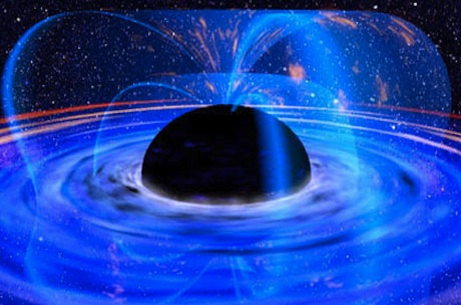
Erin Kara has won the Murdin Prize for her paper on supermassive black holes.
A Gates Cambridge Scholar has been awarded a prestigious prize by her department for the best graduate student paper of 2013 on research which allows the closest ever look at supermassive black holes and which could ultimately be used to test our theory of gravity.
Erin Kara [2011], who is doing a PhD in Astronomy, won the Murdin Prize for a paper that was published earlier this year in the UK’s main Astronomy journal: Monthly Notices of the Royal Astronomical Society.
The £500 prize is named after Emeritus Professor Paul Murdin, who established the award.
Erin says: “In this paper, I am using signal processing techniques to measure time delays in the X-ray signals that originate just outside of the event horizon of supermassive black holes. Using the fact that the speed of light is constant, we can convert these time delays into distances to put constraints on the geometrical structure of the complex environments around black holes, where gravity is at its most extreme. In this particular study, we are probing distances equivalent to 30 light-seconds around a black hole that is 500 million light-years away. If we can understand these extreme environments, we can use astrophysical black holes to test our best theory of gravity, Einstein’s General Relativity.”
For her PhD, Erin is researching the timing properties of the X-ray emission from supermassive black holes that are a million or a billion times the mass of the sun. To understand what the environments look like she is developing new tools as current telescopes are not good enough to take a picture of these systems and resolve the complex structure. The tools she uses are X-ray photons emitted very close to the event horizon of the black hole. As material falls into the black hole, its gravitational potential energy is released, thus heating up the surrounding material that remains. That material – mostly gas – gets so hot, that it radiates light.
The light gets scattered off other particles, gravitationally pulled by the black hole, absorbed and re-emitted by atoms, but eventually, some of that light escapes. Hundreds of millions of years later, that light can be detected on Earth, and astronomers try to piece together the history of that light in order to understand what is happening around the black hole. She says: “The only information we have from the light is its energy and the time that it finally hit our detector.”
Using signal processing techniques to measure time lags of tens of seconds between X-rays in supermassive black hole systems is a new field of research that has only become possible in the last decade.
Picture credit: Dana Berry, NASA.












